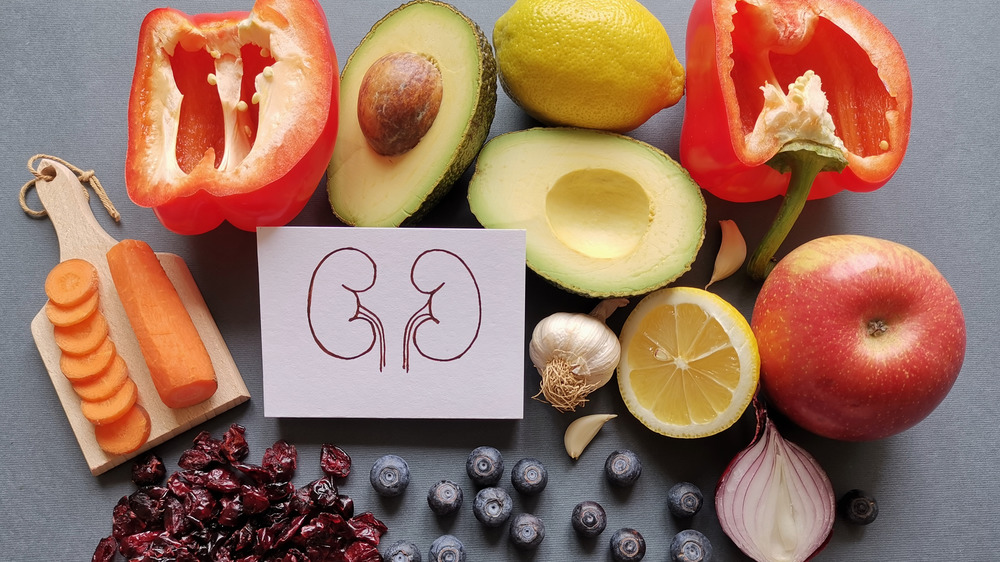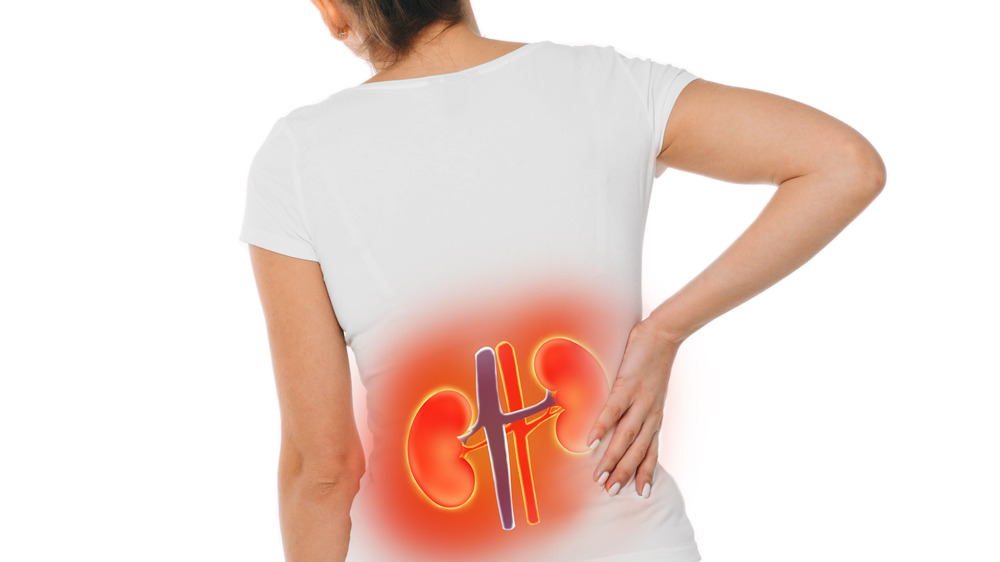The Truth About The Low Oxalate Diet
Correction 2/1/2023: A previous version of this article mistakenly stated that kiwis, dates, raspberries, citrus fruit, potatoes, beets, chocolate, carrots, nuts, and brown rice were low oxalate foods. Each of the aforementioned foods contain a high level of oxalates.
People who have kidney stones may hear the recommendation to try a low oxalate diet. While this may protect against kidney stones for people who are prone to them or who have kidney failure, the diet excludes many foods that are important to overall health.
Oxalates are compounds that occur naturally in certain foods, including some fruits and vegetables, grains, and nuts, according to Healthline. Our bodies also produce oxalic acid, and it is typically found in the urinary tract. Generally, the amounts contained in our body don't cause any issues, but for people who are susceptible, oxalate can bind with calcium to form kidney stones.
Most people consume between 200 and 300 milligrams of oxalates from food each day (via WebMD). For people who get kidney stones, consuming less than 100 mg is recommended. The low oxalate diet limits people to about 50 mg.
On a low oxalate diet, certain foods within each group need to be avoided, and protein from meat is not recommended. Other foods including kiwis, dates, raspberries, citrus fruit, potatoes, beets, carrots, nuts, chocolate, couscous, and brown rice are all high in oxalates.
Not all kidney stones will benefit from a low oxalate diet
Foods recommended for someone who is trying to keep a low oxalate diet include bananas, blackberries, cherries, apples, broccoli, cauliflower, white rice, yogurt, cheese, and coffee. Soaking foods like legumes and vegetables can reduce the amount of oxalates.
One thing to note is that not all kidney stones are the same. Only people whose stones are calcium oxalate stones will benefit from a low oxalate diet. A doctor may also tell someone with kidney stones to increase calcium through diet or supplementation, as calcium binds to oxalate in the digestive tract, helping it to pass through the body (via Cleveland Clinic).
Water is also key to assisting the work of the kidneys and clearing waste. Adults should aim for 10 to 12 glasses of fluid per day, with a goal of 5 to 6 being water. Limit sodium in the diet as well, with a goal of no more than 3 grams per day.


